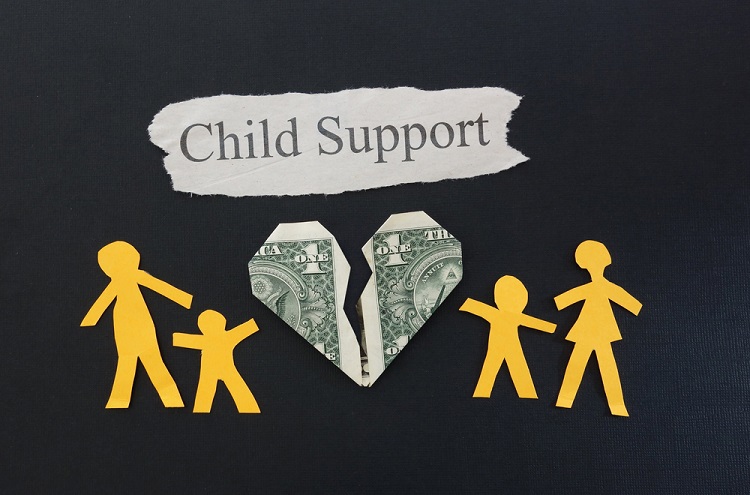What you need to know about family law and the financial effects of COVID-19


What you need to know about family law and the financial effects of COVID-19
Divorced families are experiencing unique challenges during the COVID-19 crisis. In addition to the (obvious) parenting issues, many of these families are also dealing with the economic fallout of the virus as countless Americans have lost their jobs or incomes. This new reality may have financial consequences that affect child support and maintenance payments. Under Colorado law, these payment obligations can be modified when there is a “continuing and substantial” change in circumstances.
Read on to find out more about the process of modifying child support and maintenance amid the pandemic.
Modifying child support and maintenance in Colorado (retroactivity)
A modification of child support may be appropriate if a parent lost their job or their income was reduced due to COVID-19. In Colorado, a party may seek a modification of child support if there is a “substantial and continuing” change in circumstances under C.R.S. § 14-10-122.
If the job loss is temporary and the parent will be able to go back to work again soon, that likely does not qualify as a continuing circumstance. However, if a parent permanently loses their job or suffers a permanent reduction in pay, it is likely that a Colorado court would find such a circumstance to be substantial and continuing. The prevailing questions being, how many months does a parent have to be out of work before the situation is considered to be “continuing?” How “substantial” of a reduction is enough of a reduction? There are no clear-cut answers to these questions, and parents who have lost their jobs need to be mindful that a modification of payments is only retroactive to the date the motion requesting a modification was filed.
As a result, I often advise clients to file for a modification when they have been out of work for a couple of months and they do not believe that the prospect of reemployment is imminent. This will ensure that retroactivity is preserved. A hearing on the motion will not be scheduled for several months. In the meantime, and before the hearing, you can dismiss the motion if you find a job.
A similar analysis applies if you have retained your position, but at a reduced salary. If the reduction is “substantial” and permanent/semi-permanent, I advise clients to file a motion for a modification to preserve the retroactivity of the modification. Once again, if your salary returns to normal, you can always dismiss the case.
The same statutory principles apply to a modification of maintenance; there must be a change in circumstances that is so substantial and continuing as to make the current maintenance award unfair. If you are the party who is paying maintenance and have lost your job or suffered a significant reduction in your salary, you should consider filing a motion asking the court to lower your maintenance obligation.
Alternative sources of money may be a factor
However, your income from employment is not the only consideration. If you have other financial resources available to you and you can afford to continue to pay maintenance even without your job, a court may not grant a modification based solely on your job loss. Also, if you have access to investment accounts, trust income or have other financial resources, a court may expect you to pay maintenance using those resources even if you lose your job. Whether a court would require an obligor to tap into retirement accounts to meet their maintenance obligation is a complicated question that depends on the circumstances.
In any event, in considering whether to modify a maintenance obligation, a court will evaluate an obligor’s economic circumstances, including all financial resources and circumstances that show an ability to pay. Every case is different, and it may be worth contacting a lawyer so that you get advice based on an assessment of your individual circumstances. Again, be aware of the fact that a modification of maintenance is not retroactive to the date you became unemployed but is only retroactive to the date that you filed your motion.
What if you are the party receiving child support & maintenance? Can you ask for an increase? (Yes.)
Maintenance and child support amounts can be modified both upward and downward. If you are the party who receives maintenance or child support and you have lost your job or your salary has been reduced, an increase in maintenance and/or child support may be appropriate under the same standard: a “substantial and continuing” change in circumstances. Be advised that the judge will also take into account your current economic circumstances when making a decision regarding the requested modification.
Not all maintenance orders are subject to modification
The principles discussed in this article regarding modification of maintenance are only applicable to those maintenance orders that are subject to modification—not all maintenance orders can be modified. If you have entered into an agreement with your ex-spouse and the two of you agreed that maintenance would be contractual and non-modifiable, then your order cannot be modified under any circumstances (even a global pandemic).
What if someone does not pay the maintenance or child support they owe?
If a party doesn’t pay maintenance or child support, for any reason including because of COVID-19 or a medical emergency, the party can be cited for contempt of court. However, to prevail on contempt, the person seeking contempt must prove that the obligor has the “present ability” to pay the amount owed. However, that is a subject for another day and is not addressed here.
(This sponsored content is provided by Griffiths Law PC.)
 Leslie Hansen is senior counsel at Griffiths Law PC. Hansen has experience in all aspects of family law. Her background as a prosecutor with extensive litigation experience gives her a unique perspective on family law cases. Hansen brings the right combination of strength and compassion to the practice of family law.
Leslie Hansen is senior counsel at Griffiths Law PC. Hansen has experience in all aspects of family law. Her background as a prosecutor with extensive litigation experience gives her a unique perspective on family law cases. Hansen brings the right combination of strength and compassion to the practice of family law.













